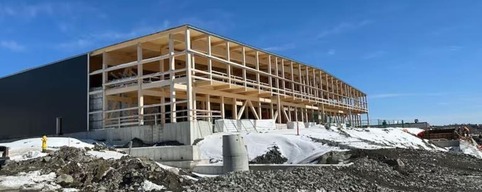

The current situation for woodlot owners in New Brunswick is characterized by growing uncertainty due to the trade war between Canada and the United States. The latter are feeling increased economic pressure, prompting many of them to consider abandoning their activities, which could ultimately disintegrate a significant part of the Canadian forestry industry.
Rick Doucett, an experienced Nasonworth owner and president of the Federation of Woodlot Owners, is expressing serious concerns about the economic future of this industry. “For several years now, we have been facing major economic challenges,” he explains. “With the current stalemate, the difficulties are constantly increasing and jeopardizing the survival of many owners.”
One of the main concerns expressed by owners is the stagnation of timber prices. Currently, prices are similar to those of the 2000s, which is a major problem when compared to the operating costs of 2025. This discrepancy between income and costs makes it extremely difficult for the forestry industry to be profitable, thus discouraging investors and gradually decimating the stability of the operations.
Despite a constant demand for forest products, the trade dispute with the United States has heightened economic tensions, further reducing the profit margins of owners. According to Rick Doucett, “Without prompt and effective intervention, we could see a wave of business closures that will significantly harm the local economy and employment.”
Canada, in order to support this struggling industry, must therefore seek urgent and innovative solutions. Without this, many communities that are heavily dependent on the income generated by the forestry industry risk suffering devastating economic and social repercussions.
Indeed, the consequences of an exodus of owners could also lead to massive job losses and destabilization of the regional economy. The communities, often located in rural areas, are heavily dependent on the forestry sector for their development and economic prosperity.
Faced with such a crisis, many experts, including Rick Doucett, suggest that government intervention is not only desirable, but essential. Without it, the risk of seeing more people abandon the industry is becoming a tangible reality.
Doucett, who has been observing the evolution of the industry since the end of the 1980s, believes that state involvement could take several forms. These include direct financial support measures, initiatives to stimulate domestic demand, and trade reforms to mitigate the impacts of the US dispute. All these actions could provide a breath of fresh air for an industry in distress.
Without these measures, the economic and social consequences will be difficult for many rural regions that depend exclusively on this industry to overcome. Woodlot owners, who have always worked in harmony with nature and contributed to regional development, hope to one day see a return to a more stable and prosperous situation.



